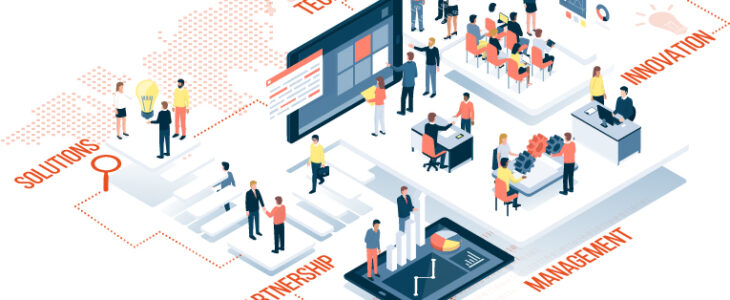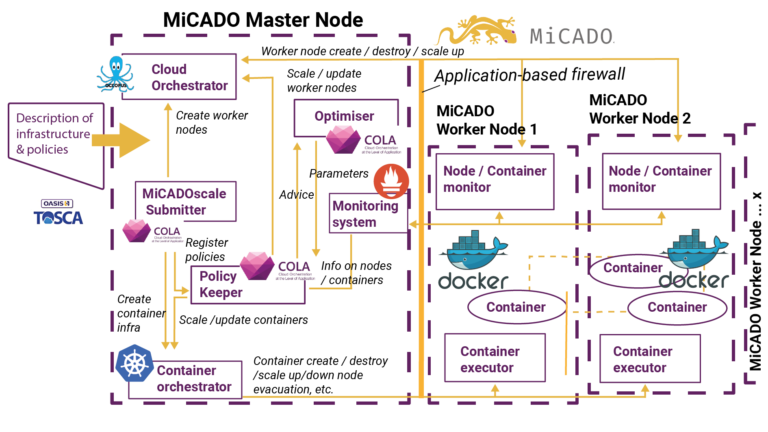
The European Commission provides over “Framework Programmes for Research and Technological Development” funding pools, e.g. to support the evolution of a competitive cloud market and a variety of services. This article gives an insight into the interplay of EU-funded projects and the context of European research and innovation projects. In addition, it shall highlight useful EU-wide services such as CORDIS.
Successful EU funded research & innovation
Since 1984, the European Commission provides over “Framework Programmes for Research and Technological Development” funding pools and invests heavily in cross-border research and development, which lays the foundations for an innovative European economy while bringing direct benefits to citizens. It all started with the first Framework Programme “FP1” until FP7 and the currently running programme is “Horizon 2020”. Over the years, the EU invested approximately €120.7 billion in European-based research and development.
Do you know the European Community Research and Development Information Service?
You can search for all EU research projects on CORDIS - from 1990 to today's cutting-edge research.
Shaping Europe’s digital future
The Cloud Market and customers consuming are constantly increasing. As a consumer, it is increasingly difficult to navigate and understand the cloud ecosystem. Outside the industry giants - like Amazon Web Services, Microsoft Azure and Google Cloud Platform - the cloud market remains a mystery to many and most have no idea how much the EU is contributing to shaping a competitive cloud market and a variety of services.
EU research result: MiCADOscale
A chunk of the above-mentioned budget funded the “COLA project” from 2017-2019. The innovation action COLA project developed a service-agnostic deployment, scaling and cloud resource orchestration framework with extended security features, implemented at the level of applications. In other words, with MiCADOscale you can easily add custom policies, which describe scalability, security and monitoring of the desired application infrastructure.
The framework is based on TOSCA, provides with seven different cloud adapters and utilizes existing best-practice technologies, like Kubernetes, Terraform, Docker, Prometheus, Occopus...

Sounds like a fancy tool for developers and nerds, but how should a citizen benefit from this outcome? Let's have a look at the ASCLEPIOS and DIGITbrain project!
Open Access to European research results
Most of the EU funded projects and actions have certain obligations to provide their outcomes to the public. Even if most of the outcomes are freely accessible to use, some outcomes are simply no “easy-use stand-alone” solution. Similar to it is with MiCADOscale, it is open-source, means all needed information and data to utilize the framework is available to the public. But to transport the real benefits to citizens, the framework needs to be utilized with some kind of applications.
Research means putting together the right puzzle pieces
At the moment MiCADOscale is used in two H2020 projects and solves common cloud issues, like Cloud portability. The modular design enabled the projects to adapt the framework to important requirements, like privacy and security of medical health data. MiCADOscale made it possible to meet the higher security and compliance regulations, which would not have been possible with any other similar software or one of MiCADOscale's components as a stand-alone.
ASCLEPIOS Project - 12/2018 - 11/2021
The ASCLEPIOS project aims to develop a cloud-based eHealth framework that protects the privacy of users. MiCADOscale framework is used to simplify the deployment, the ASCLEPIOS demonstrator applications and ASCLEPIOS services, to a one-click deployment for multiple clouds. Next to the automated deployment, MiCADOscale is taking over the monitoring, orchestration, scaling and compliance of the demonstrators means the healthcare application properties, as well as a pre-determined set of appropriate ASCLEPIOS security enablers. Over the course of the ASCLEPIOS project, MiCADOscale will also be further extended to deploy and manage applications in TEEs (Trusted Execution Environments, such as Intel SGX).
DIGITbrain Project - 07/2020 - 12/2023
The DIGITbrain project aims to develop the Digital Product Brain to embrace the evolution of distributed and localized manufacturing service models (e.g. “Manufacturing as a Service”) and will contribute towards the democratization of access to advanced digital solutions. MaaS holds many possibilities for manufacturers and engineers, but cannot neglect lots of open technical, operational, commercial, and legal questions waiting to be answered.
DIGITbrain project and its partners will tackle these challenges by running over 20 MaaS use cases and support European DIHs to adapt the new services in their regional network. Beside several outcomes of other EU funded projects, MiCADOscale emphasis on the further extension of the framework towards edge and fog orchestration (accessing remote devices like sensors, IoT devices, edge/fog nodes) at the factories.
EU funded gears mesh with others
The highlighted framework MiCADOscale is only one of several EU funded technology components of previous projects used to accumulate benefits in follow-up projects, like DIGITbrain, to maximize “real benefits” for citizens.
In DIGITbrain, a bunch of different project outcomes are accumulated to create an encompassing solution - In the future, we will repeatedly present technology components that were developed in EU projects and contribute significantly to the success of DIGITbrains technology development efforts.
Do you have questions?
Discover the I4MS community
The EU initiative to digitalise the manufacturing industry. Visit the website.


